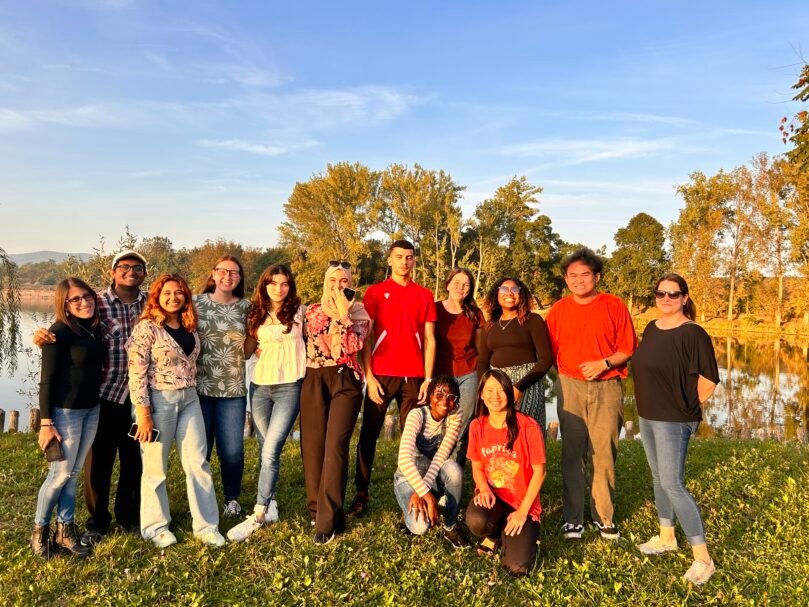Hi, fellow PTE students!
Exciting news from the International Center: they put out calls for new International Student Ambassadors, and believe me, you don’t want to miss out on this opportunity. This is one more thing to add your resumé but even better, it’s a chance to level up your skills while representing our university.
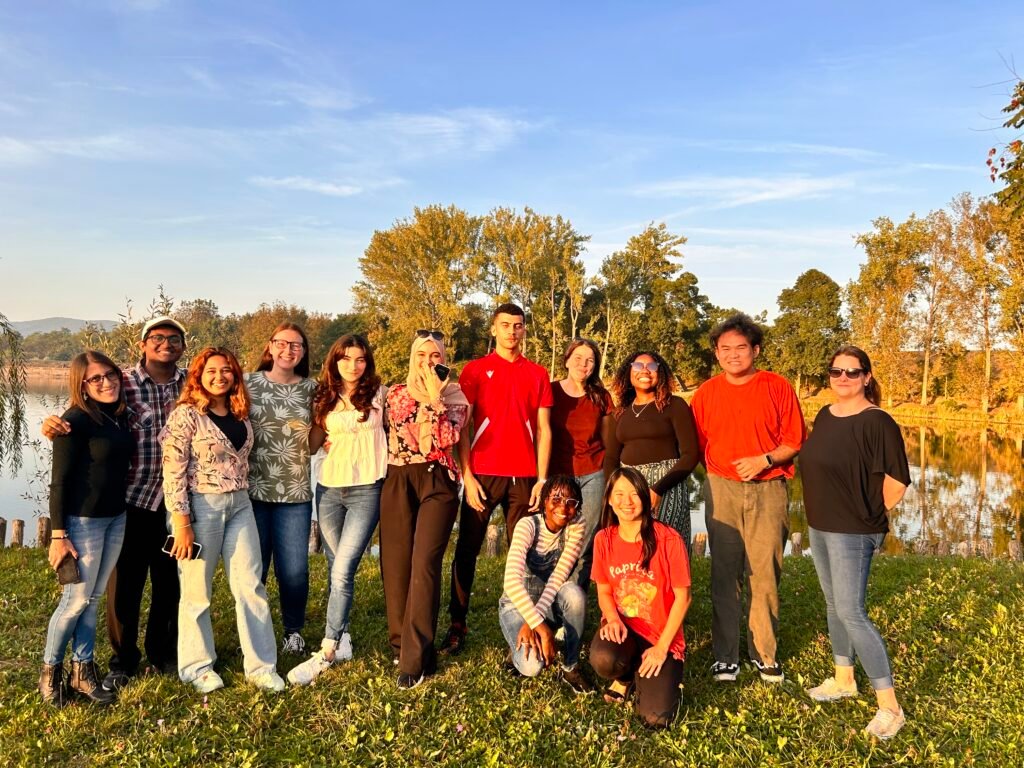
2023/2024 ISAs
What is an International Student Ambassador (ISA)?
The ISAs are carefully selected students who basically act as representatives for the university. They get to speak with prospective students and applicants of different courses at the university and market the university to them. The ISAs work under the International Center and make a vital contribution to the university’s admission and marketing process by sharing their experiences here at the university and in Pécs with inquiring persons. With nearly 5000 international students on campus, there’s no shortage of questions about life at PTE and in Hungary, and this is where the ISAs come in. They’re not just sharing their experiences; they’re making it easier for future students to navigate the exciting journey of studying abroad.
2023/2023 ISAs
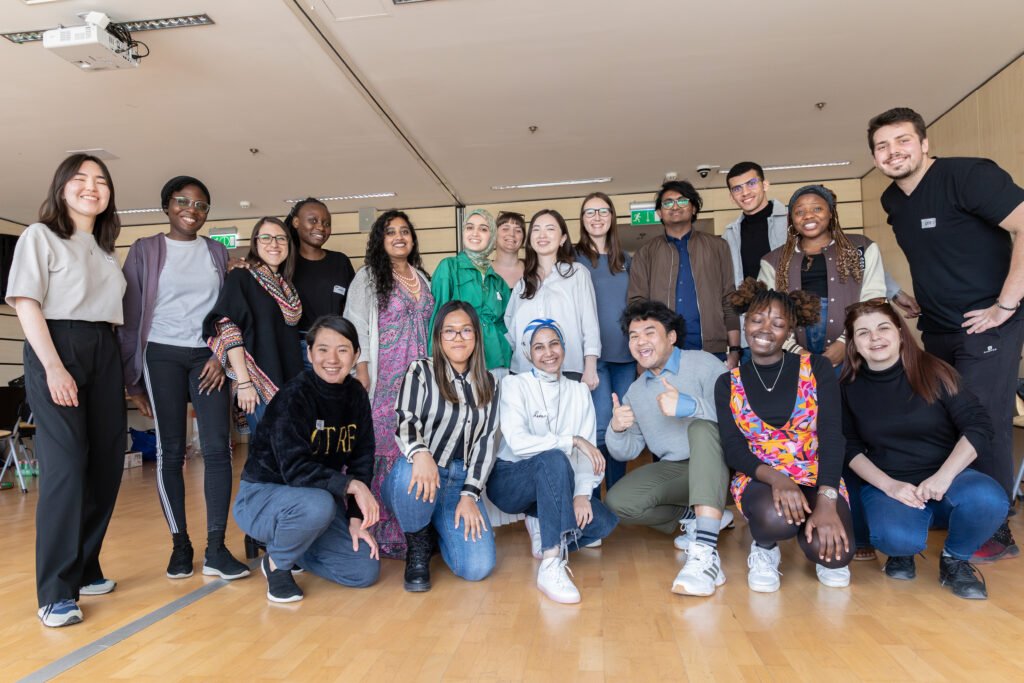
I recently had the opportunity to interview two current ISAs- Amr, a 5th year medical student in the English programme, and Faith, a 4th year pharmacy student also in the English programme- to get an idea of what their experience has been like representing the university in this manner. They shared the process of application, what the work entails and their opinions of what the perfect ISA would be.
Stay tuned as we dive into their experiences and uncover what it takes to be the ultimate ISA.
Q: Thank you for agreeing to this interview. To start off, when did you first become an ISA and for how long have you been an ISA?
A: If I remember correctly, I started in my third year. So currently, I have been an ISA for three years now and I just applied for my 4th year.
F: Same for me, I started in 2021, making this my 3rd year being an ISA.
Q: What was the process of application like? (+ any interviews?) and how did you prepare?
A: I had to fill an application form and submit a motivation letter and I think, a CV as well. There was an interview with staff members of the International Center. I have to say, the ISA programme used to be merged with a referral programme which had a financial incentive. Additionally, the Medical Faculty recently started their separate ambassador programme. It is possible to be a part of all three or just one and you will have to apply for them separately. I feel like this is something interested students should take note of.
F: I submitted the online form, together with an intro video that was requested. Afterwards, I had an interview which I prepared for using my motivational letter and the duties listed in the call-for-application.
Q: What exactly does the work entail?
A: We are expected to correspond with interested people inquiring about the university, certain courses and Pécs in general. We have a special application endorsed by the International Center for this called Unibuddy. This application is linked to the university website and a prompt for the app pops up when anyone accesses the site, allowing site visitors to be able to correspond with an ISA. There is a website as well as a mobile app and you will be reached out to by students, and even parents sometimes asking all kinds of questions.
We also get put into working groups. There are the social activities working group, the webinar working group, the video/vlog working group and the blog working groups. All these groups perform different functions. Like the social activities working groups help to structure and restructure the programme, plan team building events, meetings, trainings and any such things within the ISA. The webinar groups help organise and host webinars, and so on.
F: Yes, so just like Amr said, in the most basic form, we are advertising the school, assisting applicants with any issues in the process, any information or details regarding the application form. ISAs also provide relevant information to the best of their knowledge to students from their respective countries with details regarding visa applications. As ISAs, we also have to attend trainings and feedback sessions, where new strategies to improve the application process and advertise the university are discussed.
Q: How many hours per week did you dedicate to it?
A: So we had meetings twice a month, lasting about 45 minutes. Corresponding with students can take anywhere from 10 to 45 minutes depending on how many students reach out and how much they want to know. But I should add that the number of students can be very seasonal. So you have periods of multiple-person contact and period with 0-1 people contacting you. It varies a lot.
F: A round figure for me is between 2-3 hours per week.
Q: Are there any perks of being an ISA?
A: Absolutely. I started in the medical programme quite young, so this is technically the first real job I’ve ever had. This role really gives you the customer service experience. You get a certificate every year you serve as as ISA. You will get to meet a lot of other people from different faculties and see how different their schedules and programmes are, even though you all live within the same 5km diameter.
“I started in the medical programme quite young, so this is technically the first real job I’ve ever had.”
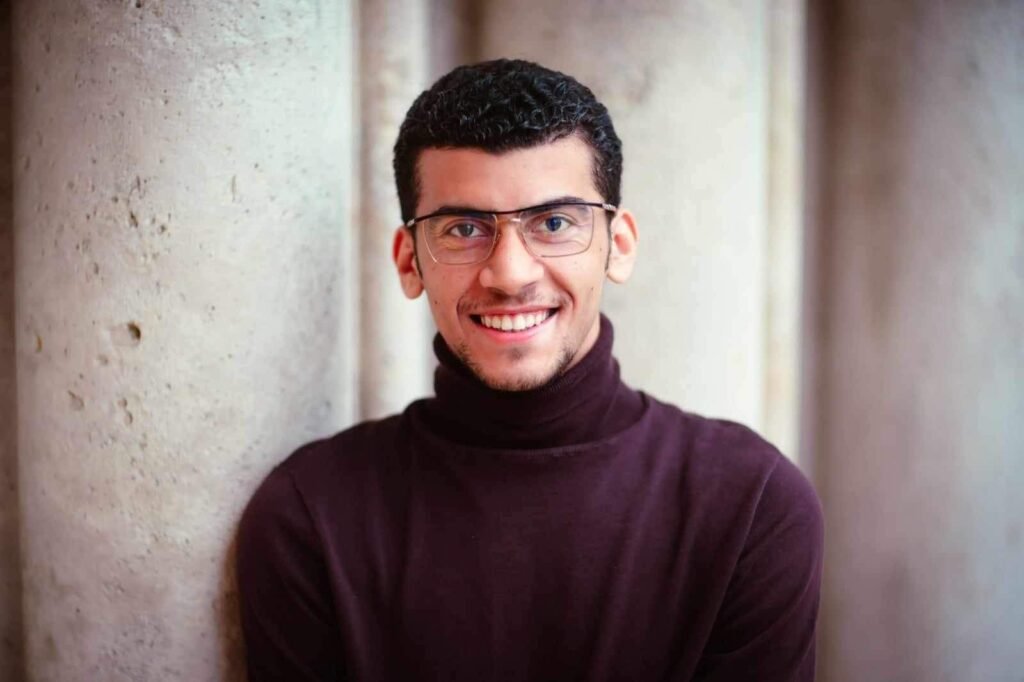
F: Well, you get first-hand information about new applications and immigration requirements. ISAs also get the opportunity to network between other ISAs and the university’s admin teams.
Q: Have you had any negative experiences? Can you share them?
F: Personally, I haven’t had any.
A: Generally no. The experience is pretty rewarding, but there’s one aspect that can be a source of frustration. Picture this- you have dedicated a lot of time and effort to engaging with a prospective student or their sponsors, diligently promoting the university and its facilities, only to have them change their mind later on. Don’t get me wrong- it’s completely within their rights to do so, but it can be disheartening, particularly for those involved in the referral program who receive financial compensation based on their efforts. Despite this, navigating these situations is an inherent part of the role.
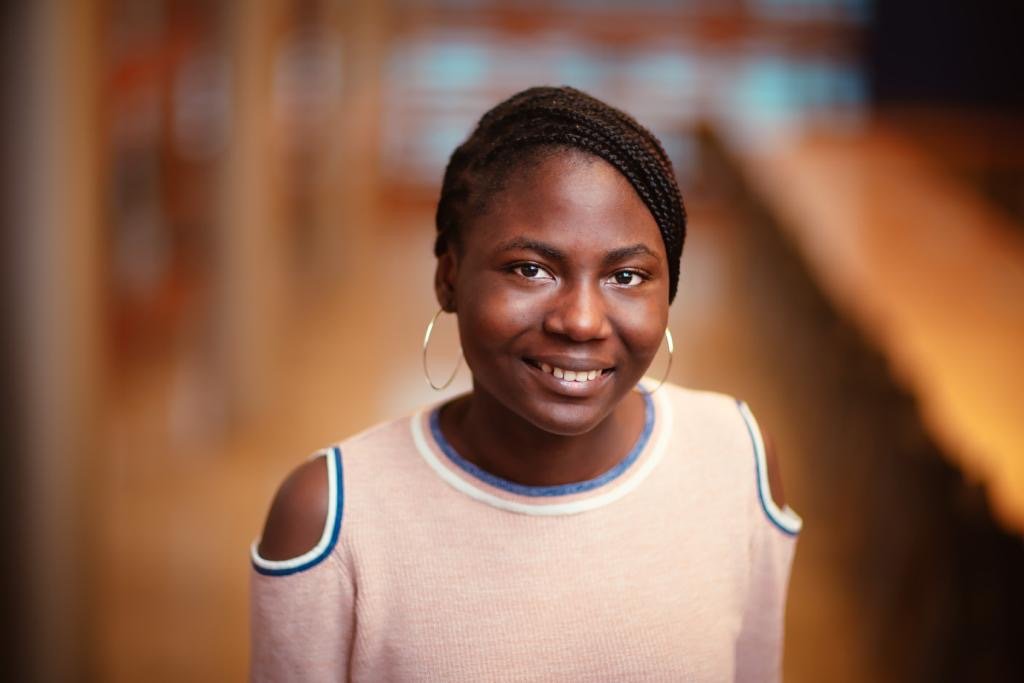
“…you need to be quite open to conversation, outgoing and be able to maintain a work-friendship balance, particularly with other ISAs.”
Q: What kind of person best fits the ISA role in your opinion?
A: You will be handling students from all over the world with different time zones so you need to be quite flexible in that regard. Time management is absolutely important. You need good communication skills because you are a representative of the university and essentially marketing the university to interested persons. The key is in the balance between charisma and professionalism. Charisma will help to connect with these potential students and being systematic and organised in your approach will give the impression of professionalism. The last thing I want to stress is that you need to have a certain ethical code you follow: for one, you never lie to a prospective student or dress things up to build unrealistic expectations.
F: To add to that, you need to be quite open to conversation, outgoing and be able to maintain a work-friendship balance, particularly with other ISAs.
Q: Would you recommend this for even final year students?
A: Things are always changing with regards to the programme. The International Center tries to refine things here and there to improve the experience both for the ISAs and those who utilise our services. But one thing I will say is that they have always been flexible with our tight and demanding school schedules and somehow I have managed to achieve a near-perfect attendance at ISA meetings and activities despite having other engagements outside of school. So I would recommend it for a final year student, yes.
F: Same, absolutely.
Okay, so that’s a wrap from Amr and Faith. Now, let me add a bit of my own experience into the mix. I was also an ISA for 2 years, alongside Amr and Faith. It was a very fulfilling experience and I learnt a whole lot. We started out corresponding via email with potential applicants and then transitioned to the Unibuddy application, which was an absolute game-changer. We had regular meetings with 1 or 2 team-building events per semester. These meetings are more frequent now, which I think is a positive change to keep us all aligned and focused.
One of the peculiar aspects of this programme was the diversity of inquiries we received. From computer science queries while being a medical student to bachelor’s program questions while pursuing a one-tier masters, each interaction broadened my knowledge. I was tasked with essentially finding and confirming every piece of information I relayed to inquirers. The best resource of all was other ISAs and I was privileged to make friends with students from very different faculties who I might have otherwise never bumped into.
This year brings exciting changes as the International Center unveils bigger and better plans for the program. You can now apply as a scholarship holder, with a small monthly financial compensation should you successfully fulfil your roles, or simply as a volunteer. Check out the guidelines here. So, if this has sparked your interest and you’re ready to dive in, send in your applications here. The deadline for applications is May 20, 2024. Don’t miss out on this opportunity to make a difference!
